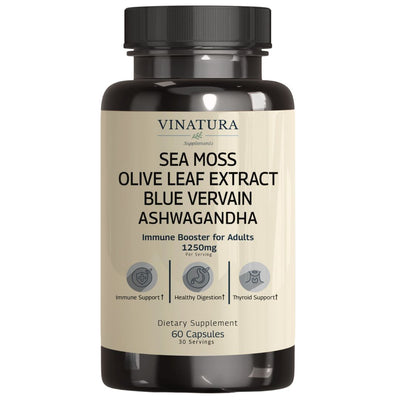
Acidophilus Benefits For Skin: How To Use Acidophilus For Skin?
Acidophilus is gaining recognition for its vast benefits, particularly in promoting healthy skin. This article will explore the benefits of Acidophilus for skin, including its moisturizing properties. As the popularity of natural and holistic skincare remedies continues to surge, understanding acidophilus benefits for skin such as radiant and youthful complexion is genuinely invaluable.
Before exploring further, please read the disclaimer located at the end of this webpage.
Acidophilus Benefits For Skin
Moisturizing Skin
Acidophilus, particularly Lactobacillus Acidophilus, plays a substantial role in skin hydration. Retaining the skin's natural moisture effectively prevents dryness and preserves a healthy skin barrier. This barrier is crucial for shielding the skin from harmful external agents, ensuring its well-being and vitality.
Notably, several scientific studies have confirmed these moisturizing benefits, asserting the safety and effectiveness of Acidophilus as a skincare ingredient [1, 2].
Its hydrating properties benefit all skin types but are particularly advantageous for individuals with dry skin. Incorporating Acidophilus into skincare products, from creams to serums, provides an added layer of hydration, leaving the skin nourished and radiant.

Anti-Wrinkle
Exposure to harmful sun UV rays has been implicated in accelerating skin aging, leading to wrinkles. One mechanism that underlies this effect is generating reactive oxygen species (ROS) that damage the skin. Lactobacillus acidophilus exhibits potent anti-wrinkle effects primarily by combating these ROS.
Several scientific studies have validated the Lactobacillus acidophilus benefits for skin in reducing wrinkle depth and improving skin elasticity [1, 2, 3].
Therefore, regularly incorporating Acidophilus into your skincare routine can significantly slow down the skin's aging process, reducing the onset of wrinkles and maintaining the skin's youthful appearance.
Repair Of Photodamaged Skin
Exposure to UV rays not only leads to dehydration and moisture loss but also speeds up skin aging and makes photodamaged skin. This can impair the skin's natural collagen synthesis process, reducing its ability to maintain a youthful appearance [2].
Interestingly, Lactobacillus acidophilus has exhibited promising results in repairing photodamaged skin. It functions as a light-protective agent and promotes the repair of photodamaged skin [2].
Including Acidophilus in your skincare regimen can be a beneficial measure to counteract the detrimental impact of UV radiation on the skin. Acidophilus benefits for skin can help maintain a healthy and youthful complexion by aiding in repair and rejuvenation.
Acidophilus Benefits For Skin Mechanism
The benefits of Acidophilus for the skin can be attributed to its ability to influence and improve various skin-related processes.
Primarily, Lactobacillus acidophilus, a specific type of Lactobacillus, reduces the epidermis's thickness, the skin's outermost layer. This reduction assists in the skin's aging process and enhances the skin's moisture retention capacity, thereby acting as an efficient moisturizing and anti-wrinkle agent [1].
In addition, the harmful UV rays from the sun induce photodamaged skin, mediated through the phosphorylation of p38, ERK 1/2, and JNK proteins. This can lead to skin damage. However, Lactobacillus acidophilus has shown the capacity to inhibit this process, effectively offering protection against UV-induced skin damage [1].
Further research is ongoing to understand and substantiate these mechanisms fully. However, the current evidence suggests that Acidophilus is a crucial element in maintaining skin health and vitality, making it a beneficial addition to skincare routines.

How To Use Acidophilus For Skin And Anti- Aging Benefits?
Though there is a lack of need for a precise study on the best method of using Lactobacillus Acidophilus for skin and anti-aging benefits, taking it orally is often recommended. It can be taken alone or combined with other probiotics, depending on your preferences and dietary needs.
The recommended daily dosage is 3 billion CFU of Lactobacillus Acidophilus, and there's no strict requirement to take it with meals. This dosage can be easily adjusted to fit your daily routine and dietary habits.
Are There Any Side Effects Of Acidophilus On Skin?
While Acidophilus is generally safe and beneficial for skin health, it's essential to be aware of potential side effects. There is currently no available research on the possible side effects of Acidophilus on the skin.
However, there have been rare allergic reactions, manifesting as symptoms like redness, itching, and swelling.
Suppose you notice any of these adverse reactions or any other unusual changes in your skin after using Acidophilus. In that case, it is advised to discontinue use and consult a doctor promptly for appropriate treatment.
Just like any other supplement or skincare product, individual reactions may vary. Before using a new product in your skincare routine, it is always recommended to conduct a patch test.
This precautionary step ensures the product is compatible with your skin and helps avoid potential adverse reactions. This precaution ensures optimal results and promotes a healthier and more radiant complexion.
Frequently Asked Questions
Can Acidophilus Cause Acne?
Most probiotic strains, including acidophilus, are effective for the skin and particularly beneficial for acne. A study on cosmetic efficacy demonstrated the acne-fighting properties of L. acidophilus.
Can Acidophilus Cause Itchy Skin?
While acidophilus typically does not cause itchy skin, it's important to note that in rare cases, certain individuals may experience allergic reactions to probiotics, including acidophilus. These reactions can manifest as itchiness, rashes, swelling (particularly of the face, tongue, or throat), dizziness, or difficulty breathing. If you observe any unusual skin symptoms after consuming acidophilus, it is advisable to promptly seek guidance from a healthcare professional.
Conclusion
The Acidophilus benefits for skin health are substantial and diverse. Its abilities range from moisturizing the skin, combating wrinkles, and protecting against UV rays to repairing photodamaged skin. Despite the need for further research to fully understand its mechanisms, current evidence strongly supports its role in skin health and vitality. While generally safe, it is crucial to remember possible side effects and seek advice from a skincare professional before commencing any new regimen.
References
- [1] Im, A-Rang., Kim, H. S., Hyun, J. W., & Chae, S. (2016). Potential for tyndalized Lactobacillus acidophilus as an effective component in moisturizing skin and anti-wrinkle products. Experimental and Therapeutic Medicine, 12(2), 759–764. https://doi.org/10.3892/etm.2016.3406
- [2] Im, A-Rang., Lee, B., Kang, D.-J., & Chae, S. (2018). Skin Moisturizing and Antiphotodamage Effects of Tyndallized Lactobacillus acidophilus IDCC 3302. Journal of Medicinal Food, 21(10), 1016–1023. https://doi.org/10.1089/jmf.2017.4100
- [3] Lim, H. Y., Jeong, D., Park, S. H., Shin, K. K., Hong, Y. H., Kim, E., Yu, Y.-G., Kim, T.-R., Kim, H., Lee, J., & Cho, J. Y. (2020). Antiwrinkle and Antimelanogenesis Effects of Tyndallized Lactobacillus acidophilus KCCM12625P. International Journal of Molecular Sciences, 21(5), 1620. https://doi.org/10.3390/ijms21051620
Author

Product Disclaimer
The dietary supplement products mentioned on this website are formulated based on scientific research and adhere to FDA guidelines for dietary supplements. However, the content of the articles has not been evaluated by the Food and Drug Administration (FDA) and is not intended to promote or endorse any specific product. Any products sold on this website are not intended to diagnose, treat, cure, or prevent any disease.
Opinions and Endorsements
Any claims, statements, or opinions expressed in the articles are those of the author(s) and do not necessarily reflect the views or opinions of the manufacturers of the dietary supplement products. The products sold on this website are separate from the content of the articles and are not directly endorsed or associated with the information presented here.
Liability Disclaimer
The author(s) of the articles, website, and manufacturers of the dietary supplement products do not assume any liability for any potential consequences arising from the use of the information provided in the articles. It is recommended that individuals consult with a qualified healthcare professional before making any dietary or lifestyle changes, including the use of dietary supplements.
Product Usage
Please refer to the product labels and packaging for specific usage instructions and guidelines for the dietary supplement products sold on this website.
Customer Support
For any concerns or questions regarding the dietary supplement products, please contact our customer support team, who will be more than happy to assist you.





Leave a Comment
Be the first to comment.
What do you think?